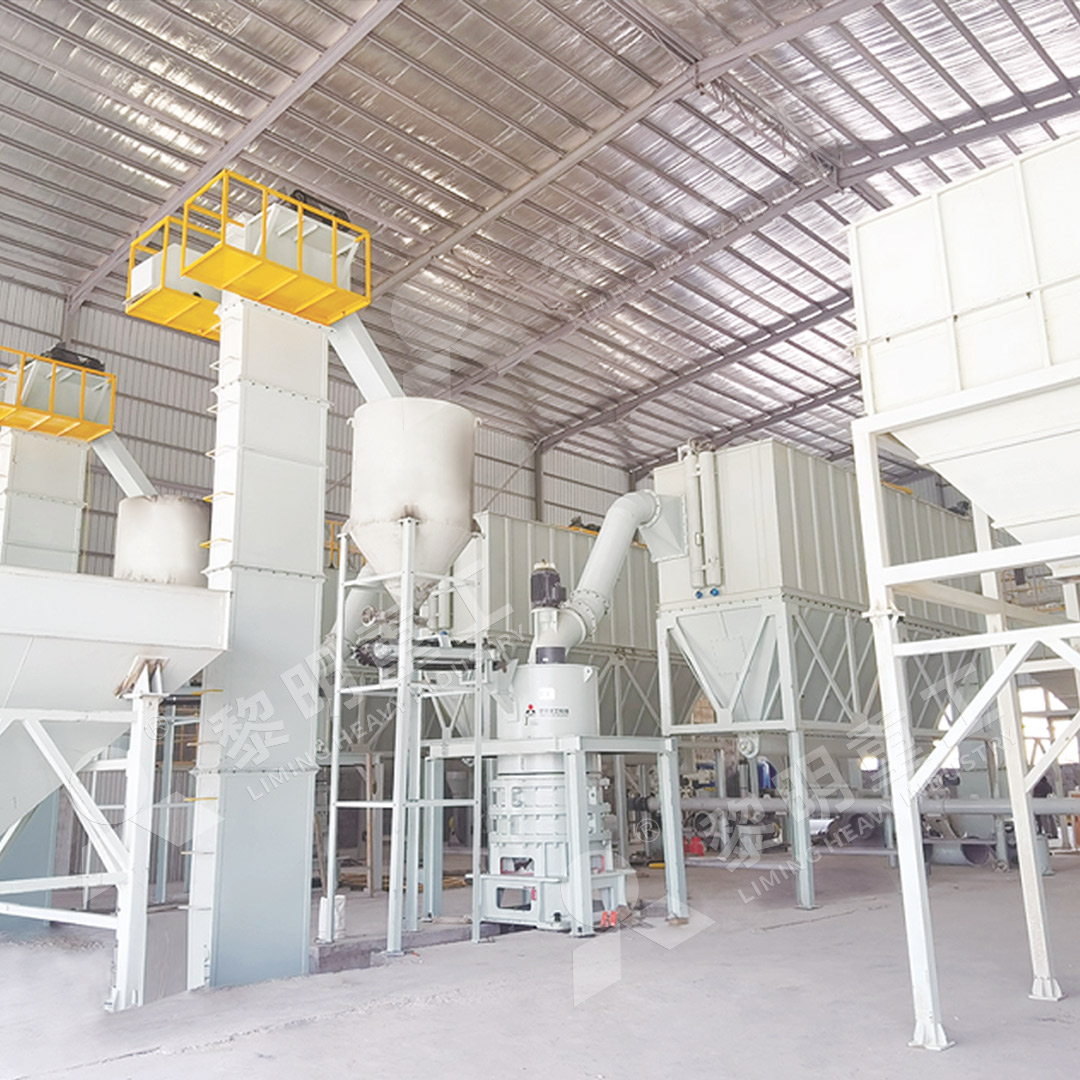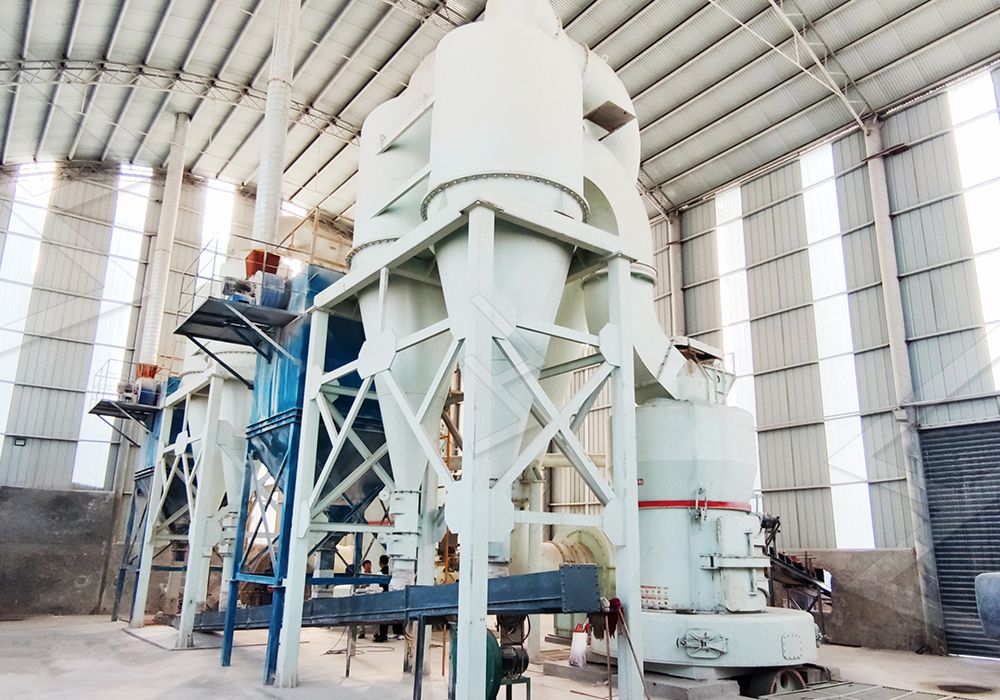Industry News
How to Produce High-Quality Mineral Feed Additives
2025-11-07 13:32:50
We are Liming Heavy Industry, a manufacturer of various types of industrial crushers, such as Raymond Mill, Trapezoidal Mill, Vertical Mill, Ultrafine Mill, Ball Mill, etc.
Our mills can process the following minerals:
limestone, quicklime, kaolin, talc, barite, bentonite, calcium carbonate, dolomite, coal, gypsum, clay, carbon black, slag, cement raw materials, cement clinker, etc.
If you need a mill to process stone or minerals into powder, please feel free to contact me (WhatsApp: +86 153 3380 7511). Thank you.
Mineral feed additives play a vital role in modern animal nutrition, providing essential minerals and trace elements that support growth, bone development, and overall health. These additives are commonly derived from natural minerals such as limestone, dolomite, bentonite, barite, and gypsum. To ensure the effectiveness and bioavailability of these nutrients, precise grinding and processing are critical. Producing high-quality mineral feed additives requires a controlled manufacturing process that ensures uniform particle size, high purity, and stable chemical composition.

The first step in producing mineral feed additives is selecting the right raw materials. Each mineral offers specific nutritional or functional benefits. For example, finely ground limestone is a primary source of calcium; dolomite provides both calcium and magnesium; bentonite improves pellet stability; and barite adds density to specialized feed formulations. However, the value of these minerals depends on achieving the right powder fineness and maintaining consistent quality. Uneven or coarse particles can reduce nutrient absorption, while contamination during grinding may affect feed safety.
Advanced grinding technology ensures these minerals are processed into uniform, fine powders suitable for animal feed production. Traditional milling methods often generate uneven particle sizes and excessive heat, which can degrade mineral structure. Modern industrial grinding systems, such as those developed by Liming Heavy Industry, provide a superior alternative. Their equipment is engineered to produce consistent fineness with low energy consumption and minimal contamination, meeting the stringent standards of the feed industry.
A high-quality feed additive typically requires a particle size range of 100 to 400 mesh, depending on the application. For example, poultry and swine feeds benefit from finer particles for better digestibility, while ruminant feeds may use slightly coarser grades. Liming Heavy Industry's grinding mills, including vertical roller and Raymond-type mills, allow precise adjustment of product fineness through automated control systems. This flexibility enables manufacturers to meet diverse feed formulation requirements efficiently.

Energy efficiency and production stability are equally important for large-scale feed additive production. Liming's grinding systems integrate crushing, grinding, and classification functions into a single unit, reducing power consumption and simplifying process flow. The sealed, negative-pressure operation minimizes dust and ensures a clean production environment, crucial for maintaining product safety and meeting environmental regulations. Compared to conventional ball mills, energy savings of up to 50% can be achieved without compromising output or quality.
Another key factor in producing premium mineral feed additives is moisture control. Excessive moisture can lead to caking or spoilage during storage and transportation. Liming's vertical mills feature integrated drying systems that handle feedstock with varying moisture levels, ensuring stable and efficient drying before grinding. This design simplifies the process and guarantees that the final powder meets industry requirements for flowability and shelf stability.
Consistency across batches is essential for maintaining feed quality and nutritional balance. Liming Heavy Industry offers intelligent control systems that automatically monitor grinding pressure, classifier speed, and material flow to ensure consistent output. Combined with robust construction and wear-resistant materials, these systems guarantee long-term performance, minimal downtime, and reduced maintenance costs—key advantages for industrial feed manufacturers.
_1761361296291.jpg)
Liming Heavy Industry provides complete mineral processing solutions tailored to customer needs, from small-scale feed additive production to large industrial facilities. With factory-direct supply and international shipping, the company supports clients worldwide, offering installation, commissioning, and after-sales service. Their grinding equipment has been widely adopted in agriculture, animal husbandry, and fertilizer industries, helping producers achieve efficient, clean, and sustainable production.
By adopting modern grinding technology and optimizing process control, manufacturers can produce mineral feed additives that enhance feed quality, improve animal performance, and meet growing global standards for food safety and environmental protection. Liming Heavy Industry's innovative solutions and global expertise make it a trusted partner for high-quality mineral feed additive production.
_1761355701097.jpg)
FAQ
1. What minerals can be processed into feed additives using Liming's grinding mills?
The mills can process limestone, dolomite, barite, gypsum, bentonite, and other non-metallic minerals commonly used in animal feed.
2. What particle size can be achieved for feed-grade powders?
The fineness can be precisely adjusted between 80 and 400 mesh to meet different animal feed requirements.
3. How does Liming ensure consistent product quality?
Automated control systems maintain stable grinding pressure and classifier speed for uniform particle size distribution.
4. Are Liming's grinding mills energy efficient?
Yes, the vertical and Raymond mills can reduce energy consumption by 30–50% compared with traditional equipment.
5. Can the system handle materials with high moisture content?
Yes, integrated drying systems allow processing of materials with up to 10–12% moisture before grinding.
6. What is the typical production capacity for mineral feed additive grinding lines?
Capacity ranges from 3 to 30 tons per hour, depending on the selected model and material type.
7. Do the mills meet environmental standards?
All Liming systems are equipped with dust collectors and operate under negative pressure, ensuring clean and safe production.
8. Does Liming provide international delivery and installation support?
Yes, Liming Heavy Industry offers factory-direct sales, global shipping, and professional technical support worldwide.







